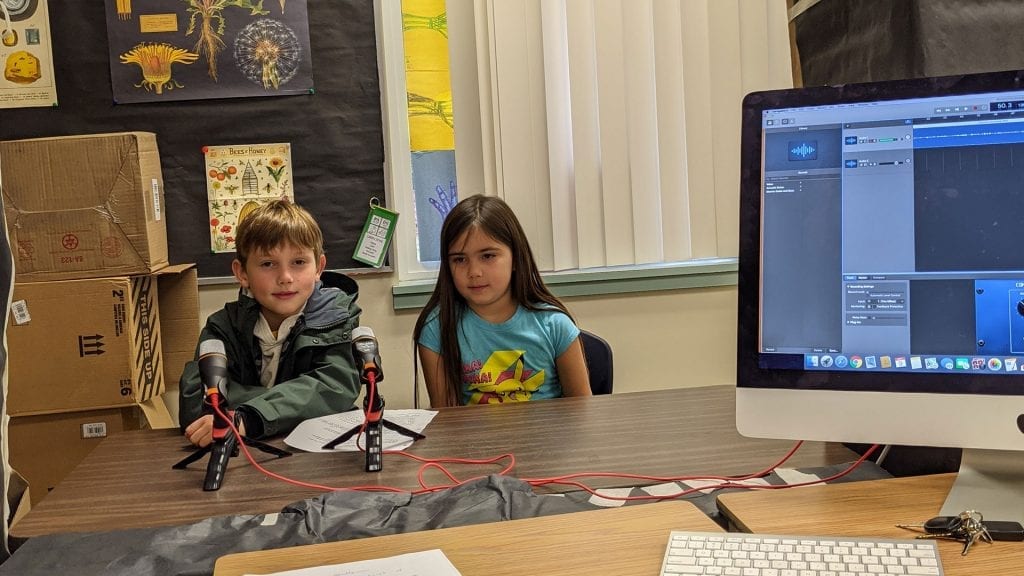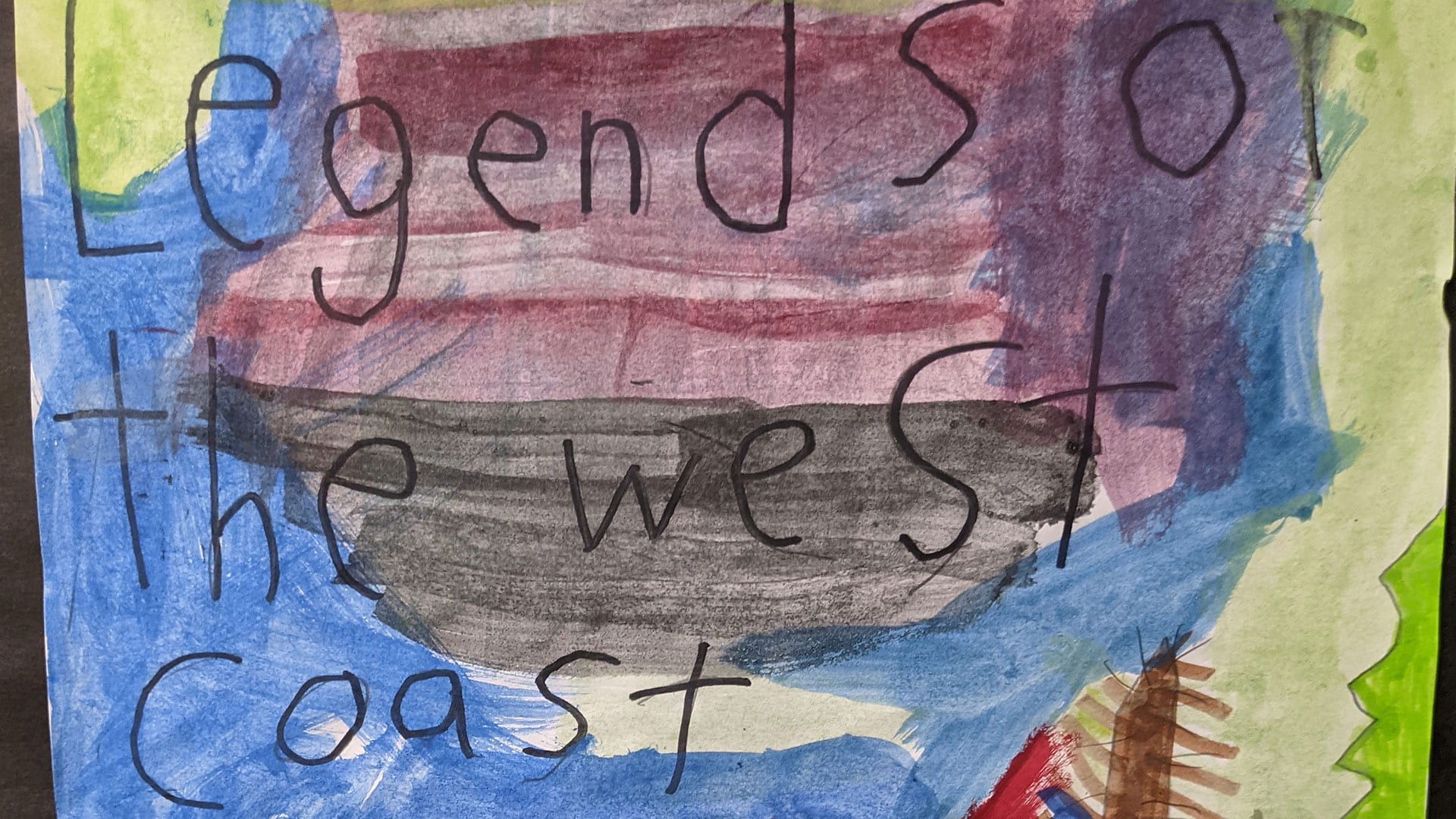
Rhodes and Lexi-May getting ready to record ‘Why the Raven and the Wolf Hunt Together’ in studio. Photo courtesy: Geoff Fleischer
Grade three students in Courtenay, B.C., have created a podcast where they interview each other and share knowledge about West Coast Indigenous stories.
It’s all done in a cardboard box recording studio that teacher Geoff Fleischer has set up in the middle of his classroom at Huband Park Elementary.
The podcast, “Legends of the West Coast,” consists of sixteen short episodes which became available online in mid-November.
For his episode, one of the students, Kenley, shared the “Legend of the Wise Owl,” a story that “[tells] you to use your eyes and your ears before you’re supposed to talk,” he explains.
Oral stories are important, he says, because “stories can pass along history.”
Fellow classmate Miles says that his most favourite part of the process was that “you got to use microphone technology.”
In another of the podcast episodes, a student named Olivia interviews her classmate Finn about the classic West Coast origin story which varies from each Nation, community and family, “How Raven Stole the Sun.”
“It tells how the moon came to be in the night sky and explains why the moon changes shape,” Finn explains, before telling a rendition of the story.
The project began earlier this school year, with students pulling Indigenous stories with different origins from books in the school library.
The children choose their own stories to share, Fleischer says, and were then tasked with having to retell it in their own way.
“It has been really meaningful for them,” says Fleischer. “They are sharing with their grandparents and their friends.”
Fleischer also taught the class about elements of storytelling such as character, setting and plot. The research, reading and writing took up a lot of the time, he says, while recording happened over an hour each day.

While the students were recording, everyone in the class would sit and listen as a way to keep with the traditions of Indigenous oral storytelling, and to give the storyteller the respect that they deserved, Fleischer explains.
Each podcast episode begins with a student introduction, followed by a short “public service announcement” that features a local landscape, explaining the significance behind it. An introductory theme song then precedes the interviews and stories.
“It’s been great to see how they’ve encountered challenges and been able to overcome those with the support of their peers, or dig in and figure things out,” Fleischer says.
The elements of the podcast, the oral traditions of Indigenous peoples, is part of the Grade 3 curriculum and Fleisher says he wanted to mix that with all aspects of learning, from social studies to science.
Fleischer has been teaching for nearly a decade and this is his first year teaching grade three at Huband Park Elementary.
He says he is always exploring new ways of expression for his students to demonstrate what they’ve learned.
“For me to be a good teacher I need to do things that excite me and motivate me,” he says.
Not only has the podcast been shared locally, it’s gone global in a short amount of time, being listened to in places like St. Lucia and Prince Edward Island.
The students can see on the map where the podcast has travelled, thanks to a digital footprint, and they are eager to see where it goes next.
“They are still waiting for it to land in Africa or South America,” Fleischer says.











